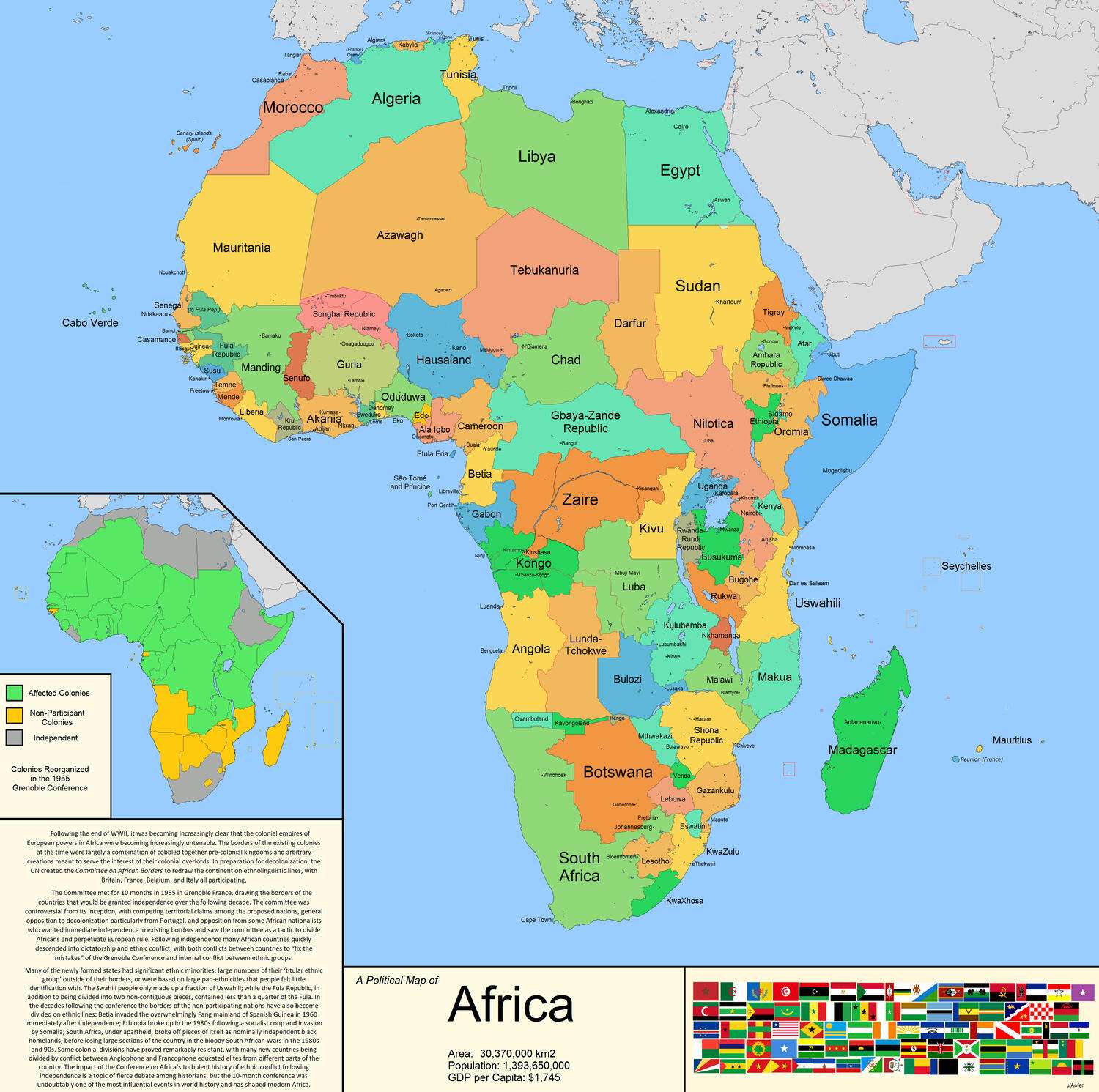What if African borders were redrawn at decolonization?
Aofen:
Following the end of WWII, it was becoming increasingly clear that the colonial empires of European powers in Africa were becoming increasingly untenable. The borders of the existing colonies at the time were largely a combination of cobbled together pre-colonial kingdoms and arbitrary creations meant to serve the interest of their colonial overlords. In preparation for decolonization, the UN created the Committee on African Borders to redraw the continent on ethnolinguistic lines, with Britain, France, Belgium, and Italy all participating.
The Committee met for 10 months in 1955 in Grenoble France, drawing the borders of the countries that would be granted independence over the following decade. The committee was controversial from its inception, with competing territorial claims among the proposed nations, general opposition to decolonization particularly from Portugal, and opposition from some African nationalists who wanted immediate independence in existing borders and saw the committee as a tactic to divide Africans and perpetuate European rule. Following independence many African countries quickly descended into dictatorship and ethnic conflict, with both conflicts between countries to “fix the mistakes” of the Grenoble Conference and internal conflict between ethnic groups.
Many of the newly formed states had significant ethnic minorities, large numbers of their ‘titular ethnic group’ outside of their borders, or were based on large pan-ethnicities that people felt little identification with. The Swahili people only made up a fraction of Uswabhili; while the Fula Republic, in addition to being divided into two non-contiguous pieces, contained less than a quarter of the Fula. In the decades following the conference the borders of the non-participating nations have also become divided on ethnic lines: Betia invaded the overwhelmingly Fang mainland of Spanish Guinea in 1960 immediately after independence; Ethiopia broke up in the 1980s following a socialist coup and invasion by Somalia; South Africa, under apartheid, broke off pieces of itself as nominally independent black homelands, before losing large sections of the country in the bloody South African Wars in the 1980s and 90s. Some colonial divisions have proved remarkably resistant, with many new countries being divided by conflict between Anglophone and Francophone educated elites from different parts of the country. The impact of the Conference on Africa’s turbulent history of ethnic conflict following independence is a topic of fierce debate among historians, but the 10-month conference was undoubtably one of the most influential events in world history and has shaped modern Africa.
Collection: imaginary - Tags: africa, alternate-history - Source: reddit.com
